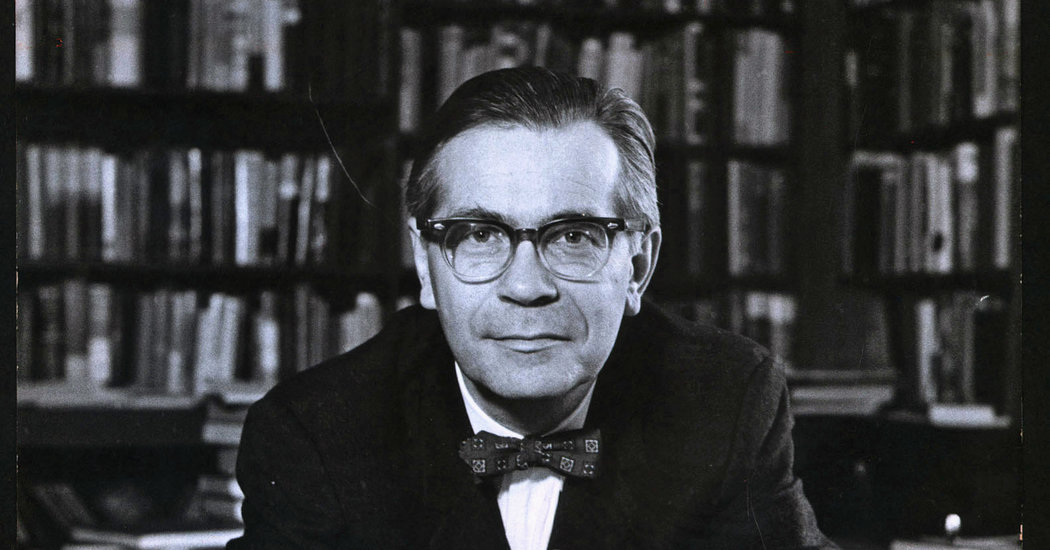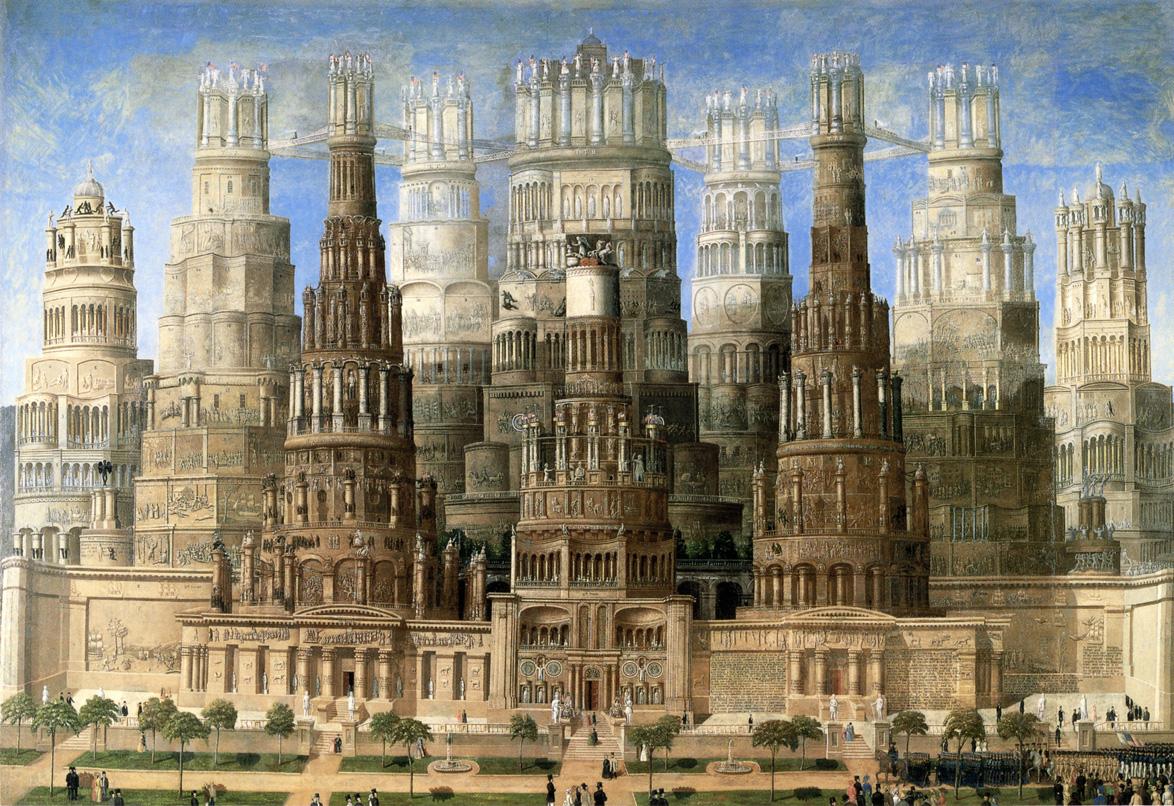(This is the eighth entry in The Modern Library Nonfiction Challenge, an ambitious project to read and write about the Modern Library Nonfiction books from #100 to #1. There is also The Modern Library Reading Challenge, a fiction-based counterpart to this list. Previous entry: The Contours of American History.)
 Before he became famous for delineating “the paranoid style in American politics” and honing every principled bone against the feverish anti-intellectualism one now sees embodied in everything from long-standing philistine Dan Kois decrying “eating his cultural vegetables” to lunatic presidential candidate Ted Cruz declaring gluten-free meals as a politically correct “social experiment,” historian Richard Hofstadter spent four years on a fiercely independent book that would go on to sell close to a million copies. The American Political Tradition was a Plutarchian overview of illustrious American figures ranging from vivacious abolitionist Wendell Phillips to Woodrow Wilson as closeted conservative. It was aimed at winning over a high-minded American public. Like William Appleman Williams, Hofstadter was very much following in Charles Beard’s footsteps, although this historian hoped to march to his own interpretive drum. Reacting to the toxic McCarthyism at the time, Hofstadter’s cautious defense of old school American liberalism, with the reluctant bulwark hoisted as he poked holes into the foibles of celebrated icons, saddled him with the label of “consensus historian.” With each subsequent volume (most notably The Age of Reform), Hofstadter drifted further away from anything close to a scorching critique of our Founders as hardliners enforcing their economic interests to a more vociferous denouncement of agrarian Populists and numbnuts standing in the way of erudite democratic promise. Yet even as he turned more conservative in later years, Hofstadter insisted that his “assertion of consensus history in 1948 had its sources in the Marxism of the 1930s.”
Before he became famous for delineating “the paranoid style in American politics” and honing every principled bone against the feverish anti-intellectualism one now sees embodied in everything from long-standing philistine Dan Kois decrying “eating his cultural vegetables” to lunatic presidential candidate Ted Cruz declaring gluten-free meals as a politically correct “social experiment,” historian Richard Hofstadter spent four years on a fiercely independent book that would go on to sell close to a million copies. The American Political Tradition was a Plutarchian overview of illustrious American figures ranging from vivacious abolitionist Wendell Phillips to Woodrow Wilson as closeted conservative. It was aimed at winning over a high-minded American public. Like William Appleman Williams, Hofstadter was very much following in Charles Beard’s footsteps, although this historian hoped to march to his own interpretive drum. Reacting to the toxic McCarthyism at the time, Hofstadter’s cautious defense of old school American liberalism, with the reluctant bulwark hoisted as he poked holes into the foibles of celebrated icons, saddled him with the label of “consensus historian.” With each subsequent volume (most notably The Age of Reform), Hofstadter drifted further away from anything close to a scorching critique of our Founders as hardliners enforcing their economic interests to a more vociferous denouncement of agrarian Populists and numbnuts standing in the way of erudite democratic promise. Yet even as he turned more conservative in later years, Hofstadter insisted that his “assertion of consensus history in 1948 had its sources in the Marxism of the 1930s.”
Such adamantine labels really aren’t fair to Hofstadter’s achievements in The American Political Tradition. The book is by no means perfect, but its Leatherman Wave-like dissection of American history unfolds with some sharp and handy blades. While Hofstadter is strangely reluctant to out Andrew Jackson as a demagogue (“He became a favorite of the people, and might easily come to believe that the people chose well.”) and far too pardonable towards John C. Calhoun, a rigid bloviator with a harsh voice who was one of slavery’s biggest cheerleaders and whose absolutist stance against tariffs under the guise of moderatism would later inspire the South to consider secession as a legitimate nuclear option1, Hofstadter at his best slices with a necessary critical force into many hallowed patriarchs. For it is the sum of their variegated and contradictory parts that has caused some to view the American trajectory in Manichean terms.
One of the book’s standout chapters is Hofstadter’s shrewd analysis of Lincoln as an exceptionally formidable man who dialed down his egalitarian ardor to zero the meter for his shrewd and very rapid political rise. In just four years, Lincoln advanced from an obscure attorney in Illinois to a prominent party leader in that same state’s House of Representatives. But Hofstadter cogently argues that Lincoln was far from the outspoken abolitionist who would later lay down some very strong words against those who would deny other people freedom. Lincoln not only kept his enemies closer than his friends, but he was exceptionally careful with his rhetoric, even though one eye-popping 1836 declaration proposed extending suffrage to women.2 Much as Franklin D. Roosevelt was very savvy about letting his political opponents make the first move before he acted, Lincoln used the Declaration of Independence’s very text as ammunition and inspiration for his justification for abolition, which come much later — Lincoln’s first public condemnation of slavery arrived when Lincoln was forty-five — than Lincoln’s many admirers are often willing to admit.
Hofstadter points out that Lincoln’s seeming contradiction between revolutionary politics and pragmatic interpretation of the law was not especially peculiar, but part of a nuts-and-bolts perpetuation of an ongoing political tradition, one that can be seen with Lincoln’s hard maneuvering with the 1851 conditional loan he issued to his stepbrother John D. Johnson. Lincoln’s famous House Divided speech was masterful rhetoric urging national reconciliation of the slavery issue, but he didn’t exactly go out of his way to out himself as an abolitionist. Hofstadter points out that in 1858, seemingly Honest Abe spoke in two entirely different manners about racial equality in Chicago and in Charleston (see the second paragraph of his first speech). Yet these observations not only illustrate Lincoln’s political genius, but invite parallels to Lyndon Johnson’s brilliant and equally contradictory engineering in passing the 1957 Civil Rights Act (perhaps best chronicled in a gripping 100 page section of Robert A. Caro’s excellent Master of the Senate). The American political tradition, which Hofstadter identifies as a continuity with capitalist democratic principles, is seen today with Hillary Clinton struggling against a young population hungry for progressive change unlikely to happen overnight, despite Bernie Sanders’s valiant plans and the immediate need to rectify corporate America’s viselike hold on the very democratic principles that have sustained this nation for more than two hundred years.
Yet this is the same tradition that has given us long years without a stabilizing central bank, the Trail of Tears, the Civil War, the Credit Mobilier scandal, robber barons, and Hoover’s unshakable faith that “prosperity was just around the corner,” among many other disgraces. Hofstadter is thankfully not above condemning lasseiz-faire absolutism, such as Grover Cleveland’s unrealistic assumption that “things must work out smoothly without government action, or the whole system, coherent enough in theory, would fall from the weakness of its premises” or the free silver campaign that buttressed the bombastic William Jennings Bryan into an improbable presidential candidate. On Bryan, Hofstadter describes his intellectual acumen as “a boy who never left home” and one can see some of Bryan’s regrettable legacy in the red-faced fulminations of a certain overgrown boy who currently pledges to make America great again. A careless and clumsy figure like Bryan was the very antithesis of Lincoln. Bryan failed to see difficult political tasks through to their necessary end. He would adopt principles that he once decried. His well-meaning efforts amounted to practically nothing. Think of Bryan as Fargo‘s Jerry Lundegaard to Lincoln’s Joe Girard. Hofstadter suggests that “steadfast and self-confident intelligence,” perhaps more important than courage and sincerity, was the very quality that Bryan and this nation so desperately needed. Yet in writing about Teddy Roosevelt and pointing to the frequency of “manly” and “masterful” in his prose, Hofstadter imputes that these “more perfect” personal qualities for the political tradition “easily became transformed into the imperial impulse.”
This is, at times, a very grumpy book. One almost bemoans the missed opportunity to enlist the late Andy Rooney to read aloud the audio version. But it is not without its optimism. Hofstadter places most of his faith in abolitionist agitator Wendell Phillips. But even after defending Phillips from numerous historical condemnations and pointing to Phillips’s “higher level of intellectual self-awareness,” Hofstadter sees the agitator as merely “the counterweight to sloth and indifference.” But Hofstadter, at this young stage of his career, isn’t quite willing to write off agitators. He does point to why Phillips was a necessary and influential force providing equilibrium:
But when a social crisis or revolutionary period at last matures, the sharp distinctions that govern the logical and doctrinaire mind of the agitator become at one with the realities, and he appears overnight to the people as a plausible and forceful thinker. The man who has maintained that all history is the history of class struggles and has appeared so wide of the mark in times of class collaboration may become a powerful leader when society is seething with unresolved class conflict; the man who has been valiantly demanding the abolition of slavery for thirty years may become a vital figure when emancipation makes its appearance as a burning issue of practical politics. Such was the experience of Wendell Phillips: although he never held office, he became one of the most influential Americans during the few years after the fall of Fort Sumter.
 The question of whether you believe Hofstadter to be a consensus historian or not may depend on how much you believe that he viewed the American political tradition much like two Lazaruses forever duking it out for existence in the old Star Trek episode “The Alternative Factor.” He certainly sees a nation of political pragmatists and obdurate agitators caught in an eternal dead lock, which is not too far from the progressive historians who styled their interpretations on class conflict. But his fine eye for ferreting out the Burkean undertow within Woodrow Wilson’s putative liberalism or exposing how Hoover’s faith in unregulated business had him quivering with disbelief after Black Thursday suggests a historian who is interested in countering ideological bromides. Perhaps if Hofstadter had stretched some of his chapters across a massive book, his reputation as a consensus historian wouldn’t have been the subject of so many heated arguments among political wonks.
The question of whether you believe Hofstadter to be a consensus historian or not may depend on how much you believe that he viewed the American political tradition much like two Lazaruses forever duking it out for existence in the old Star Trek episode “The Alternative Factor.” He certainly sees a nation of political pragmatists and obdurate agitators caught in an eternal dead lock, which is not too far from the progressive historians who styled their interpretations on class conflict. But his fine eye for ferreting out the Burkean undertow within Woodrow Wilson’s putative liberalism or exposing how Hoover’s faith in unregulated business had him quivering with disbelief after Black Thursday suggests a historian who is interested in countering ideological bromides. Perhaps if Hofstadter had stretched some of his chapters across a massive book, his reputation as a consensus historian wouldn’t have been the subject of so many heated arguments among political wonks.
Fortunately, the next Modern Library essay in this series will investigate how one man fluctuated his politics to serve his own ends and reshaped a major metropolis through the iron will of his personality. That very long and very great book may be the key that turns the consensus lock. It will certainly tell us a lot more about political power.
Next Up: Robert A. Caro’s The Power Broker!


